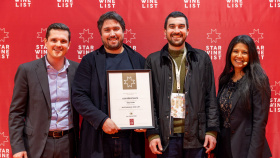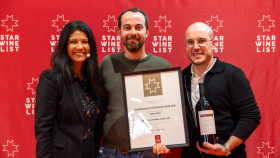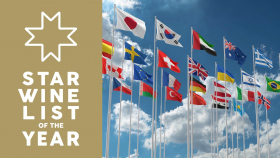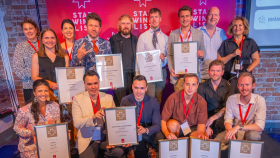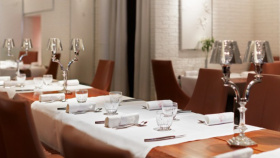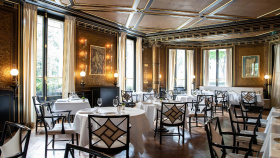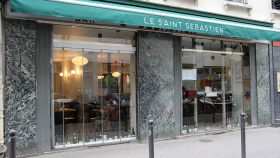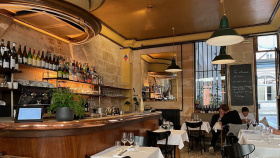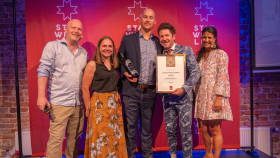New Star Wine List of the Year France sees Jeremy Cukierman MW joining judging panel
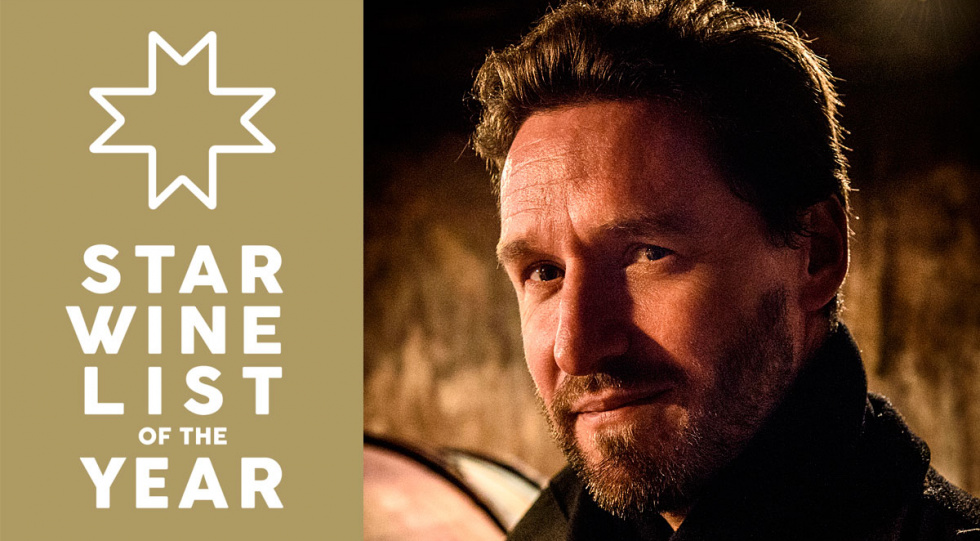
With Star Wine List of the Year's first competition in France due to be launched in February 2024, Jeremy Cukierman MW is joining the event as a local judge. Helen Arnold caught up with him to find out about his insights into the French wine scene, the biggest mistakes he sees in wine lists, and one of his favourite wine venues - outside France.
To celebrate the very best wine lists in France, Star Wine List will be bringing its event to Paris on 12 February during Wine Paris & Vinexpo Paris next year. The awards, which include various categories such as the Best Sparkling Wine List, the Best by the Glass List and Best Newcomer are open to all restaurants and bars in France, read more here.
Jeremy Cukierman MW boosts French judging team
A highly respected wine professional, Jeremy Cukierman has many strings to his bow - not only is he a director of the Kedge Wine School which has campuses in Paris and Bordeaux, he is also author of two books, the award-winning Vignerons Essentiels and Quel Vin pour Demain which discusses climate change and its impact on the wine world. Cukierman is also much in demand as a consultant to many wine businesses, while he also works as a speaker and trainer. Additionally, he contributes articles to the French magazine Vigneronand the Italian publication Civiltà del Bere.
How did you start off in the wine world, and what attracted you to the business?
When I was 25 I was working in an advertising agency as a media planner, which was something I joined without much thought. After my first internship there I met some people who were passionate about wine, and got the chance to taste some very good wines with people who were far more knowledgeable than me, and it soon became a passion of mine too as I fell in love with wine and gastronomy. I started travelling to different wine regions, trying to obtain wine allocations in top wine estates and organising wine dinners in gastronomic restaurants. Four years later I decided I wanted to work in the wine world full-time so left my job and set up my own wine merchant business in Paris, as well as a wine event agency.
How do you feel about joining the Star Wine judging panel?
Delighted! It's extremely important to recognize and promote those restaurants and wine bars which offer exciting wine lists. We need them to highlight the work of the best wine producers, the great terroirs, the wines with a sense of place and to pair them with food.
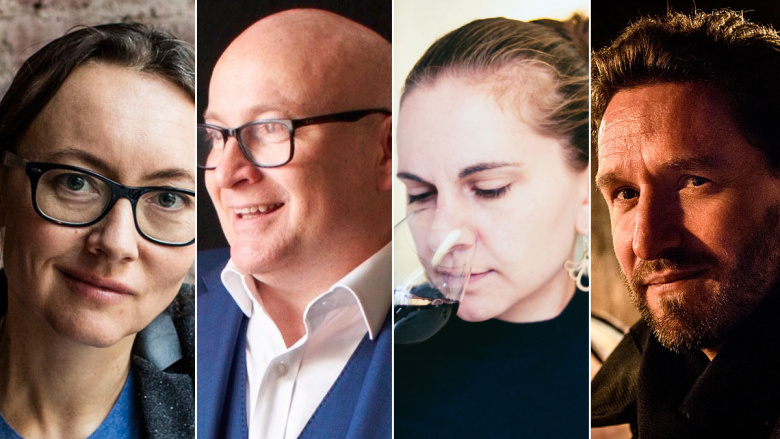
What do you hope to discover and achieve as an judge?
New restaurants and wine lists obviously. But also restaurants which really work on pairing food and wine, which is not as common as you might think. After all, to best appreciate a good bottle of wine, you need the right meal! I hope to highlight restaurant owners who love wine and the people who produce it, and who understand that cuisine and wine must work hand in hand. Last but not least, I would like to promote those places who are not playing the inflation game.
What are you looking for in a Star Wine List Award winner?
Both classicism and curiosity, originality, fair pricing, and ideally some mature wines. Also, of course, a place where the sommelier can adapt to his customers, and to listen and understand. A good sommelier understands the most important part of his job is to bring joy to his clients and to pay tribute to the wine producer and the chef.
France remains a reference point - people still love the top French wine.
France is traditionally considered the home of wine, but do you think that it has kept up with other producing countries in recent years? Or do you think there has been a tendency for it to rest on its laurels?
France remains a reference point - people still love the top French wines. The best Bordeaux wines remain the reference for those who produce Bordeaux blends while producers of Pinot Noir or Chardonnay will look to Burgundy. The Northern Rhône is the reference if you produce Syrah, while Champagne remains the inspiration for those producing traditional method sparkling wines. However, it does not mean that other amazing wines are not produced elsewhere. The most important element in the wine world is to understand your terroir and how to best express the emotion it can deliver. If you have achieved that, then what you produce is truly special. It can be done in many different countries and regions, provided you have the terroir and the right grapes to express that.
What do you think that France does best – what is its USP if you like?
France has more than two thousand years of wine history. The best French producers have a fine understanding of their terroirs and know how to best express the magic that can come from them. That knowledge and know-how have been passed on from generation to generation. Additionally, France offers much diversity in terms of wine styles. That's what makes France truly special, though this is also true for Italy and to a lesser extent Spain and Portugal.
Which French regions and grape varietals do you think are underrated, and hold most future potential?
There are many. For instance, Roussillon is an amazing wine region, with a huge diversity of soils and microclimates and is just starting to be recognized as it should be. The Crus of Beaujolais are also superb terroirs - they have been forgotten about for a few decades and people are now just realising how inspiring they can be. Thanks to climate change Champagne will produce more and more qualitative still wines while the Loire is also far from having said its final word and some of its subregions will probably begin to shine more and more. Regarding grape varieties, we are beginning to understand the potential of Melon de Bourgogne in the Muscadet region, while Cabernet-Franc still has great potential, especially with climate change, as does Carignan.
What would you like to see more of in the French wine sector?
Young passionate sommeliers - it’s becoming more and more difficult to hire young sommeliers and there is a huge imbalance between needs and resources. But we all have a responsibility in the wine business and need to win over younger generations and show them that working in the wine industry is something that is quite unique - as well as being a privilege.
What do you think makes a great wine list?
As I said before, both classicism and diversity. And fair pricing!
And what do you think are the most common mistakes made with wine lists?
Lack of diversity and too high prices with crazy mark ups.
Finally, which wine lists - outside France - do you particularly admire, and why?
Celler de Can Roca in Girona, Spain, offers an extremely extensive wine list, which for a three Michelin star restaurant is not unusual, but with incredibly affordable prices which is far less commonplace! I would also name Vintage 97 in Torino, a one Michelin star restaurant, for the same reasons.
Do like the Pros - search 2500+ wine lists




